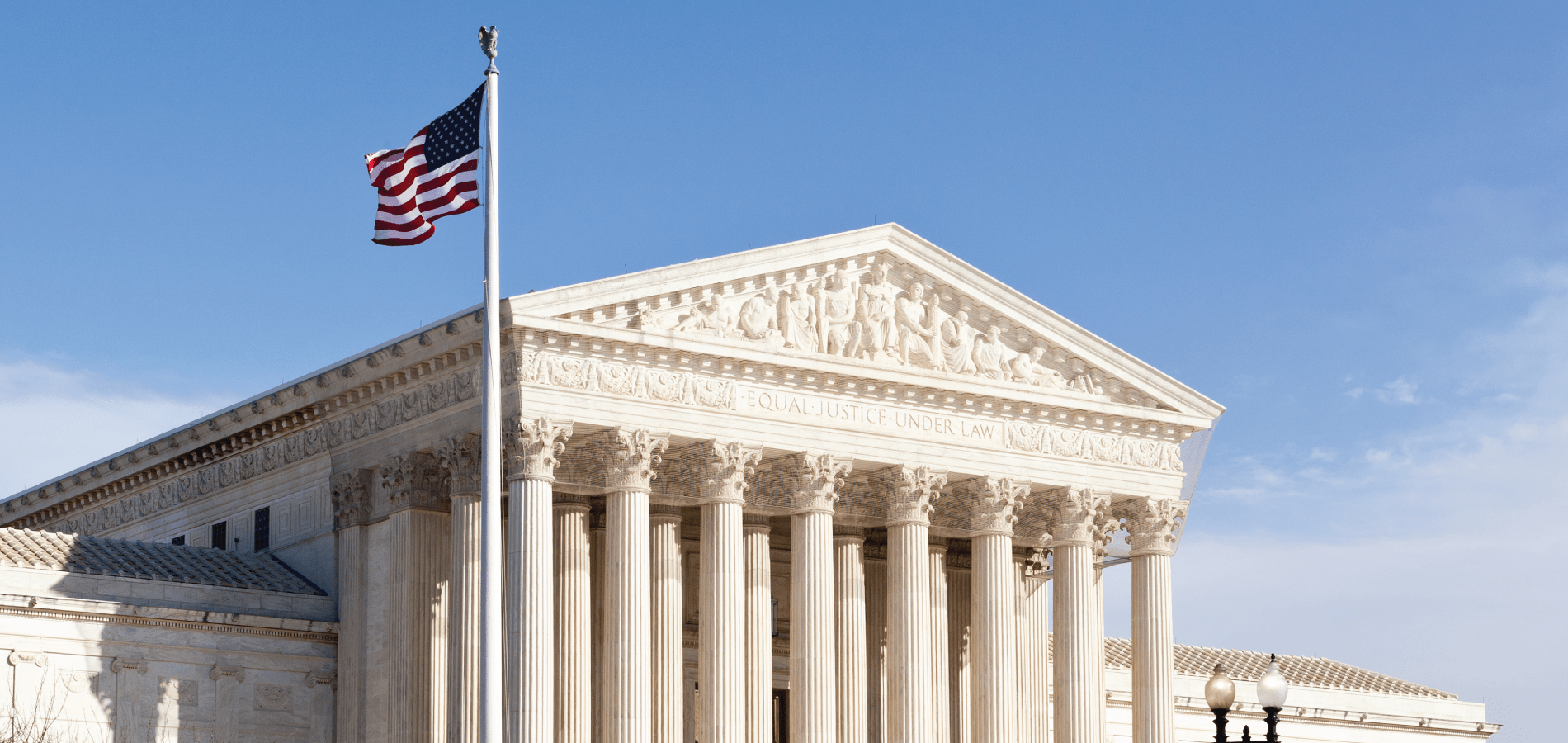A drone, more formally known as an unmanned aerial vehicle (UAV), is an aircraft without a human pilot onboard. Drones operate with various degrees of autonomy, either under remote control by a human operator or autonomously by onboard computers. UAVs originated in military applications for missions that were dirty or dangerous. However, drones are used for more than just military needs, and because of that, regulation issues arise.
What Drones Are Used For
Although the origin of drones began with military use, drones are expanding to commercial, scientific, recreational, agricultural, and surveillance applications. They are used for aerial photography or drone racing. Some drones are used to inspect tracks or power lines, or even to assess a wildfire.
Recently, a drone responded to a 911 call in California of a woman who was ramming a man on a motorcycle, chasing him down a street. A police drone was able to broadcast a live video of the event and sent it straight to officers’ smartphones. Officers were able to easily locate the man and woman and know exactly what had transpired moments before arriving. Although drones have been used in the past after a crime had occurred, now police departments are using drones while a crime is in progress so they can decide how to approach the situation.
Wing, a startup owned by Google’s parent company, Alphabet, has just secured approval for one of the world’s first drone delivery services in Australia. Wing allows users to place an order through an app, and within minutes their order is delivered by a drone. Items such as fresh food, coffee, ice cream, and medicine have been successfully delivered to people’s homes.
Naturally, the use of drones can raise concerns. A recent survey by Pew Research Center conducted in December 2017 found that 54 percent of Americans disapprove of drones flying near homes. Some of the reluctance comes from the invasion of privacy, specifically related to the Fourth Amendment, as well as sound. This is where regulation hurdles arise.
Regulation of Drones
To operate a drone in the United States for recreational purposes, users must obtain a Certificate of Authorization (COA) from the Federal Aviation Administration (FAA). Any drone weighing more than 250 grams flown for any purpose must be registered with the FAA. Failure to register a drone can result in criminal penalties up to $250,000 and/or imprisonment for up to three years. Drones cannot fly over most federal facilities or over people. They cannot fly at night or within five miles of an airport without permission. Drones must fly below 400 feet and less than 100 miles per hour.
Under 49 U.S. Code Section 40103, the U.S. government has exclusive sovereignty of airspace and citizens have a public right of transit through navigable airspace. There are some state and local laws that conflict with the FAA’s federal legal authority and require consultation before being enacted. Recently, 10 federally sponsored projects were selected to explore regulations. For these projects, the FAA waived current restrictions to gather data. This included a variety of tests ranging from mosquito control in Florida to medical equipment delivery in Nevada.
Drone regulation also varies from country to country. In the United Kingdom, drones of 44lbs or less must fly within the operator’s eyesight and cannot be flown over large crowds. In Japan, drones cannot fly near airports or more than 150 meters above ground/water. They are not allowed in urban or suburban areas but can be flown in rural areas. In the United Arab Emirates, citizens must obtain a certification from the Dubai Civil Aviation Authority (DCAA). This certification can be obtained online.
One of the hurdles faced by the FAA is how to regulate the various people using drones and the potential for these people to fly them into airspace which can pose a risk to the public. Technology has not been developed to be able to take control of drones that could pose a threat. Another concern is that the number of drones in the sky can raise the risk of collision.
Fly into HeinOnline
Users can research this hot topic a few different ways in HeinOnline. Enter the Law Journal Library and run a basic search for the word drones using the Full Text tab. Topics were previously available as a metadata search facet and through More Like This, but topics are now exposed for all articles within search results.
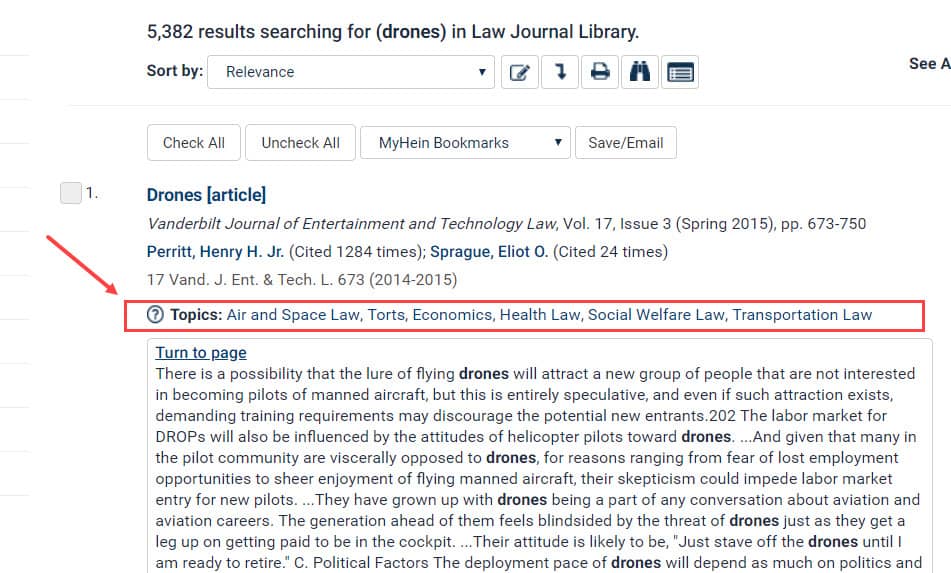
Click on the topic listed Air and Space Law in the first result to see articles that fall under this subject. Articles relevant to this topic include:
- Drone Laws and Regulations in UAE
- Policing the Police: Balancing the Right to Privacy Against the Beneficial Use of Drone Technology
- The Fourth Amendment in the Age of Persistent Aerial Surveillance
Next, click on the article titled AirSpace in Age of Drones. From here, users can utilize the More Like This button to find similar articles or can click on topics to see what other subjects this article covers.
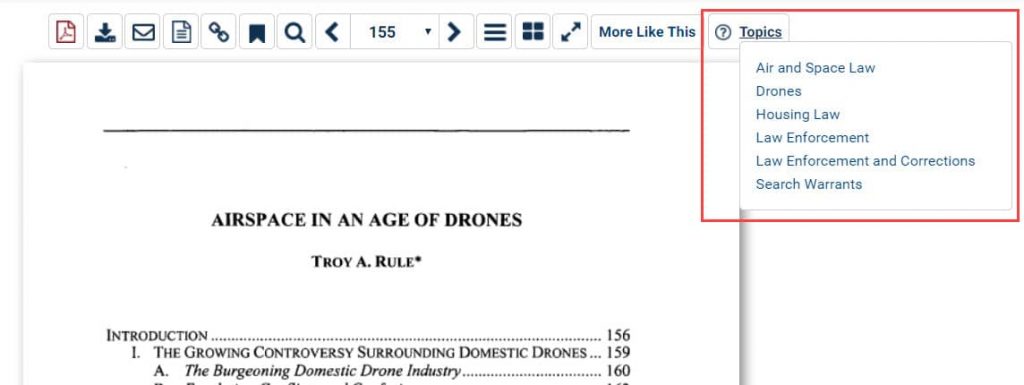
Notice the topic Drones is available. Click on this topic to see a list of relevant articles including:
- Seeking Law Abiding Drones: What to Tell Client that Want to use Drones in Their Business
- The Drone as a Privacy Catalyst
- Drones in the Homeland: A Potential Privacy Obstruction under the Fourth Amendment and the Common Law Trespass Doctrine
- Commercial Drones and Privacy: Can We Trust States with Drone Federalism
Next, enter the U.S. Congressional Documents database to search for CRS Reports on this topic. Enter the word drone into the Full Text tab and click the search button. Next, refine the results by choosing CRS Reports from the Document Type facet.
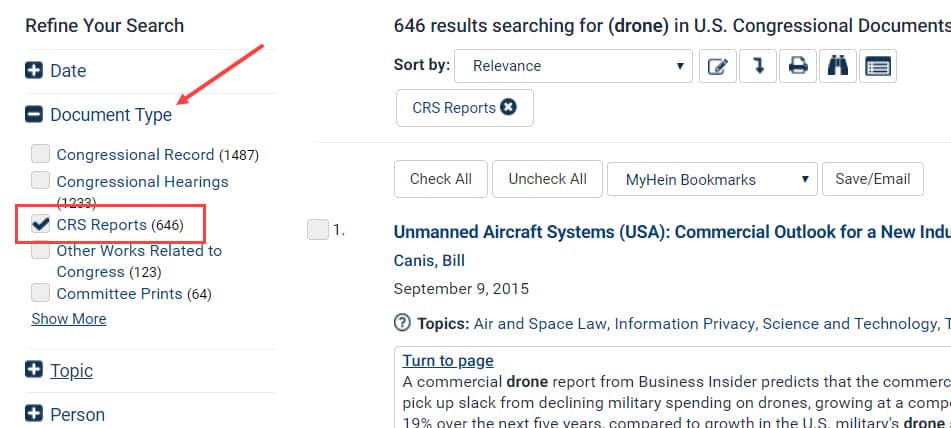
Relevant results include:
- Unmanned Aircraft Systems (UAS): Commercial Outlook for a New Industry
- Delivery Drones: Coming to the Sky Near You?
- Reauthorization of the Federal Aviation Administration (FAA) in the 115th Congress
Lastly, let’s take a look at the McGill Institute of Air and Space Law Publications database. This database features material from the McGill Institute of Air and Space Law, the leading authority on the subject. Users can search current issues and the archives of Annals of Air and Space Law or browse nearly 50 other titles on this topic.
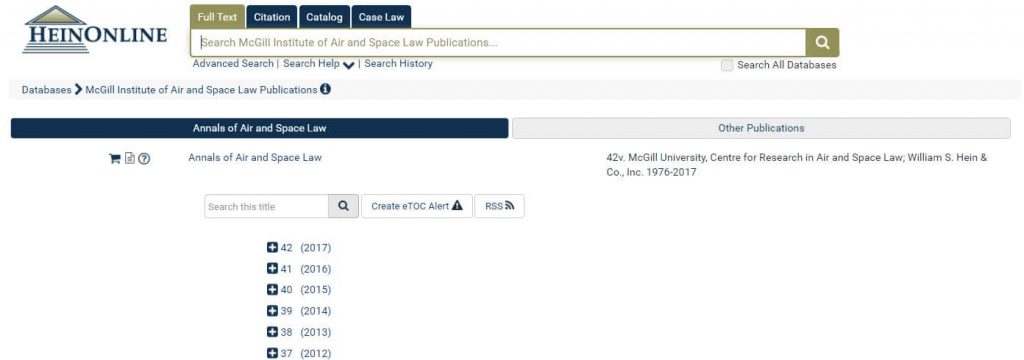
Customers can purchase either online-only access to the McGill Institute of Air and Space Law Publications or the online access along with new print volumes as they’re released. Contact marketing@wshein.com for more information.
Stay in the know with HeinOnline and connect with us on our social media platform: Facebook, Twitter, Instagram, and YouTube.


